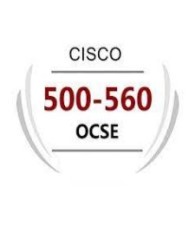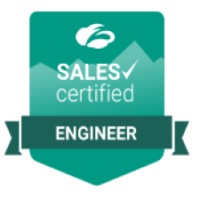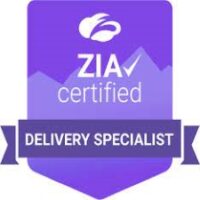Co-authored by Vivek Bhargava.
Realizing the full potential of industrial digitization requires extensive connectivity of operations assets wherever they might be – at busy city intersections, inside… Read more on Cisco Blogs
Co-authored by Vivek Bhargava.
Realizing the full potential of industrial digitization requires extensive connectivity of operations assets wherever they might be – at busy city intersections, inside utility substations, in rail and subway stations, along extreme temperatures and high-vibration production lines, within wind or solar farms, in mines and in oilfields. In these kinds of harsh environments, organizations need to deploy, secure, and maintain a wide range of connected devices. Full connectivity is the starting point and needs a network that is scalable, resilient, secure, and incorporates proven IT practices to keep the network performing up to expectations.
A new class of industrial rackmount switches
In January last year, Cisco launched the first two products in the Cisco Catalyst IE9300 Rugged Series Switches portfolio. These switches are closely related to the widely adopted Cisco Catalyst 9000 family with the same hardware ASICs, the same IOS XE operating system, and offer the same level of network automation, assurance, and policy enforcement by Cisco Catalyst Center (previously known as Cisco DNA Center). This year, we are extending that portfolio with one of the industry’s most innovative and comprehensive product sets.
Figure 1: Catalyst IE9300 Rugged Series all-fiber models
The new all-fiber and all-copper models of these rackmount, Layer 3 switches deliver the same security, scalability, and automation that customers have come to expect from our Catalyst 9000 enterprise-grade rackmount switches. But the Catalyst IE9300 switches are ruggedized for industrial environments – unlocking new opportunities to bring enterprise-grade networking to industrial networks.
One switch family, unlimited possibilities
Specific features make these multifunction switches especially powerful and versatile. For example, the latest models offer higher Power over Ethernet (PoE) wattage and high PoE budget (up to 720W). That means organizations can connect more – and higher-power, higher-bandwidth – endpoints, including Wi-Fi 6/6E access points, 4K UHD and PTZ cameras, digital signage, and even thin clients and user laptops, to name a few.
These models also provide higher bandwidth – up to 2.5GE downlinks and 10GE uplinks – for high-bandwidth endpoints and to enable data to be backhauled from many access switches in field deployments such as road intersections, railroads, and manufacturing environments. For utilities, the products’ high-density fiber ports and IEC 61850 compliance make them ideal for substation automation. Across industry sectors and use cases, Software-Defined Access makes it easier to interface industrial networks with enterprise networks. They also unlock the benefits of Cisco Cyber Vision and Endpoint Analytics to enhance visibility and security throughout industrial networks.
Figure 2: Catalyst IE9300 Rugged Series all-copper models
The IE9300 family is built to withstand extreme temperatures and is hardened for vibration, shock and surge, and electrical noise. These switches offer extended durability thanks to no moving parts and their fanless, convection-cooled design. And they comply with specifications for several industries – from Intelligent Transport Systems (ITS) to utility substation environments.
To put it more conversationally, you can think of the Catalyst IE9300 Rugged Series as the Layer 3 switches that you can use for (almost) everything and (nearly) everywhere!
Use cases for the Catalyst IE9300 Rugged Series Switches
One of the best ways to illustrate the potential of these new products is to describe some of the use cases they make possible:
High density fiber access. Fiber ports offer several benefits over copper. Fiber cables are immune to electromagnetic radiation, offer safer transmission in hazardous conditions due to their electric isolation, and can transmit data over much longer distances without experiencing signal degradation or loss of quality. Use cases for fiber include industries such as utilities that are modernizing substations using native fiber devices, and traffic backhaul from field deployments.
Clock input and precision timing. GPS and IRIG-B inputs that allow network synchronization ensure that different devices across the network are working with the same time reference, which is crucial for applications requiring coordinated actions. For example, in energy sectors, accurate time synchronization is crucial for monitoring power grid events, fault detection, and grid stability. Further, Precision Timing Protocol (PTP) Power Profile built into the IE9300 ensures 50ns per-hop accuracy that keeps the delay within 1µs over 16 switch hops.
Aggregation and cost-efficiency. 10G uplink fiber aggregation switch makes it possible to connect Resilient Ethernet Protocol (REP) and Media Redundancy Protocol (MRP) rings in non-climate-controlled field points-of-presence. This use case has broad potential in field deployment such as in roadways, wind, and solar farms. The 10G uplinks help avoid oversubscription that could occur in Gigabit only switches.
Distribution layer switching. Uplink ports open new opportunities for IE9300 to be used as distribution layer switches that you can deploy right in dusty and hot environments ensuring that critical data flows smoothly between access switches and the core network. Stacking capabilities of IE9300 ensure scale and redundancy.
High-wattage and high-density PoE. Copper models of IE9300 offer a variety of PoE options and can provide power to connected devices with a total of up to 720W per switch. Note that the IE9300 delivers 720W of PoE power while still maintaining a 1RU form factor, a first in the industry. Moreover, you can configure the switch to deliver up to 90W on a single 2.5GE port. This combines high bandwidth with high-power on a single port enabling new use cases.
Flexibility and scalability. Although the IE9300 switches have a fixed port count, and multiple units can be stacked to increase the number of available ports while still appearing virtually as a single switch, which reduces configuration complexity. Management by Cisco Catalyst Center makes onboarding and reconfigurations easy, increasing flexibility to keep pace with operations.
Visibility and security. Granular visibility into connected assets and network traffic is the necessary first step in ensuring operations security. Compute capabilities within the IE9300 allow it to run Cisco Cyber Vision sensors that provides visibility, risk assessments, and helps form the basis for network segmentation for security.
As you look to evolving your industrial network and gain from Industry 4.0 opportunities, look to the Catalyst IE9300 Rugged Series as your solution to connect everything – everywhere.
Learn more
Visit the Catalyst IE9300 page, get a closer look at the models to see how they could work for you, get all the details in the datasheet, request a personal no-obligation no-cost consult with one of our switching experts, or reach out to us with your questions in our community space.
Learn about the use cases for the new class of industrial rackmount switches with unlimited possibilities Read More Cisco Blogs










